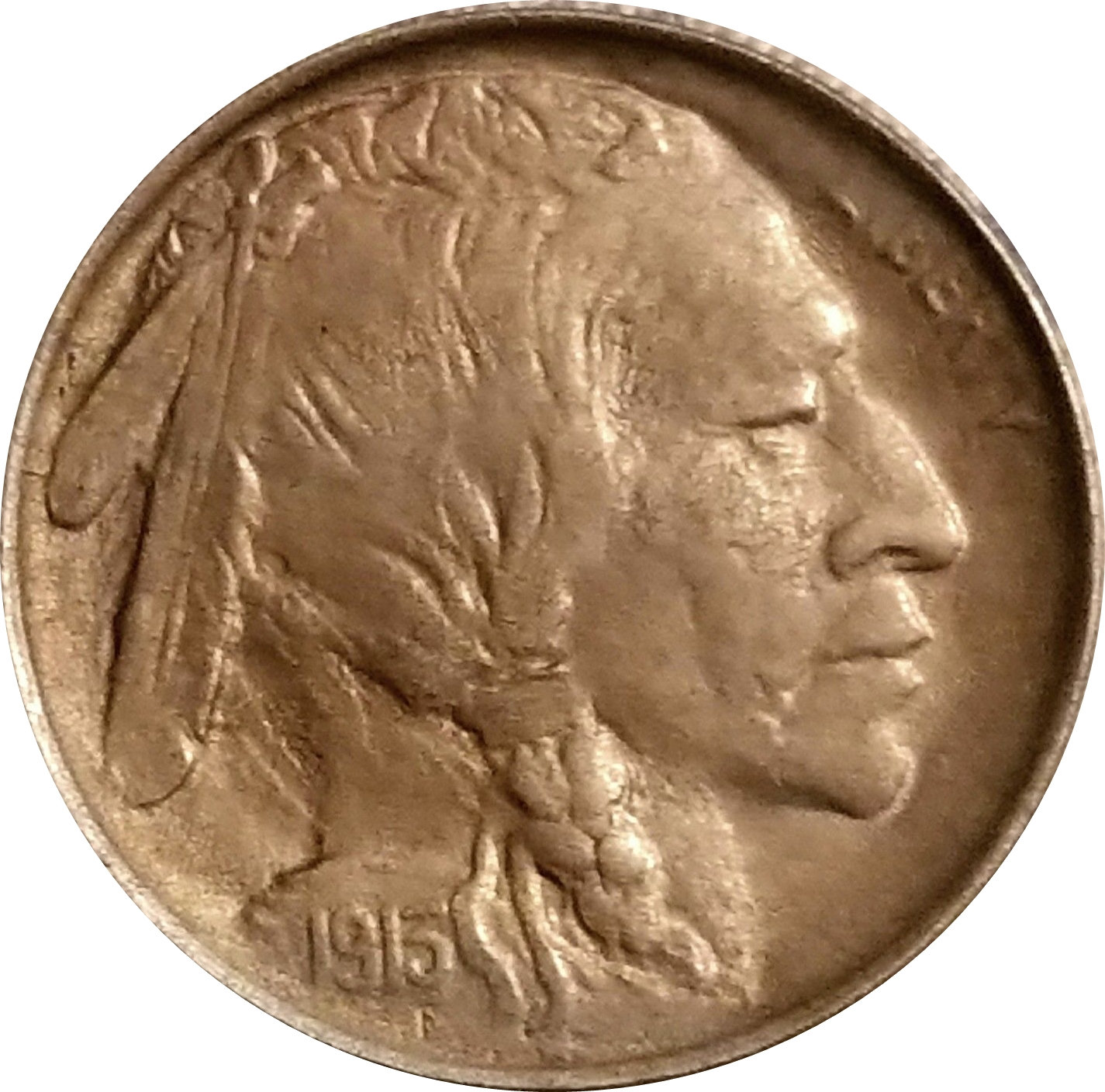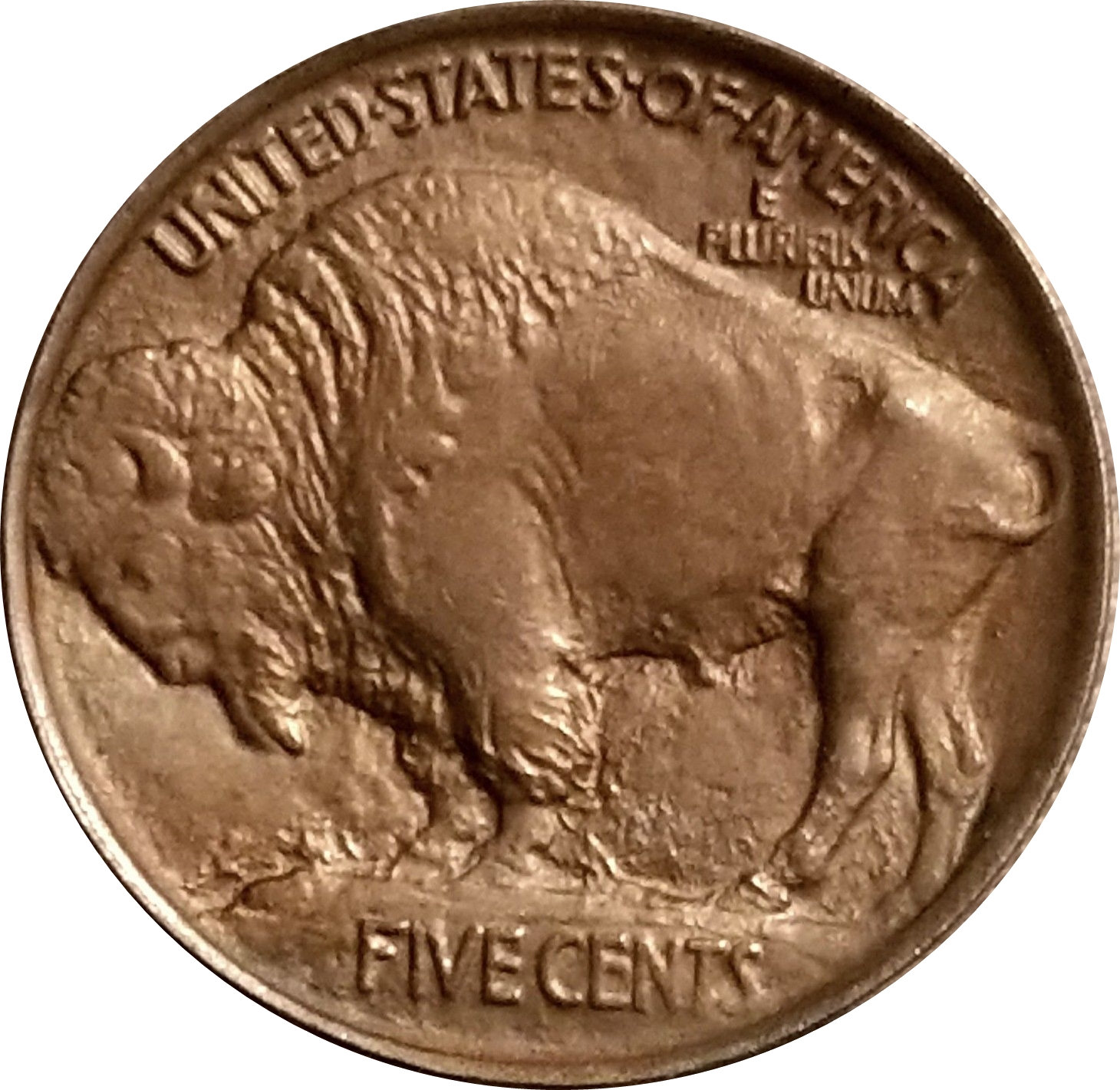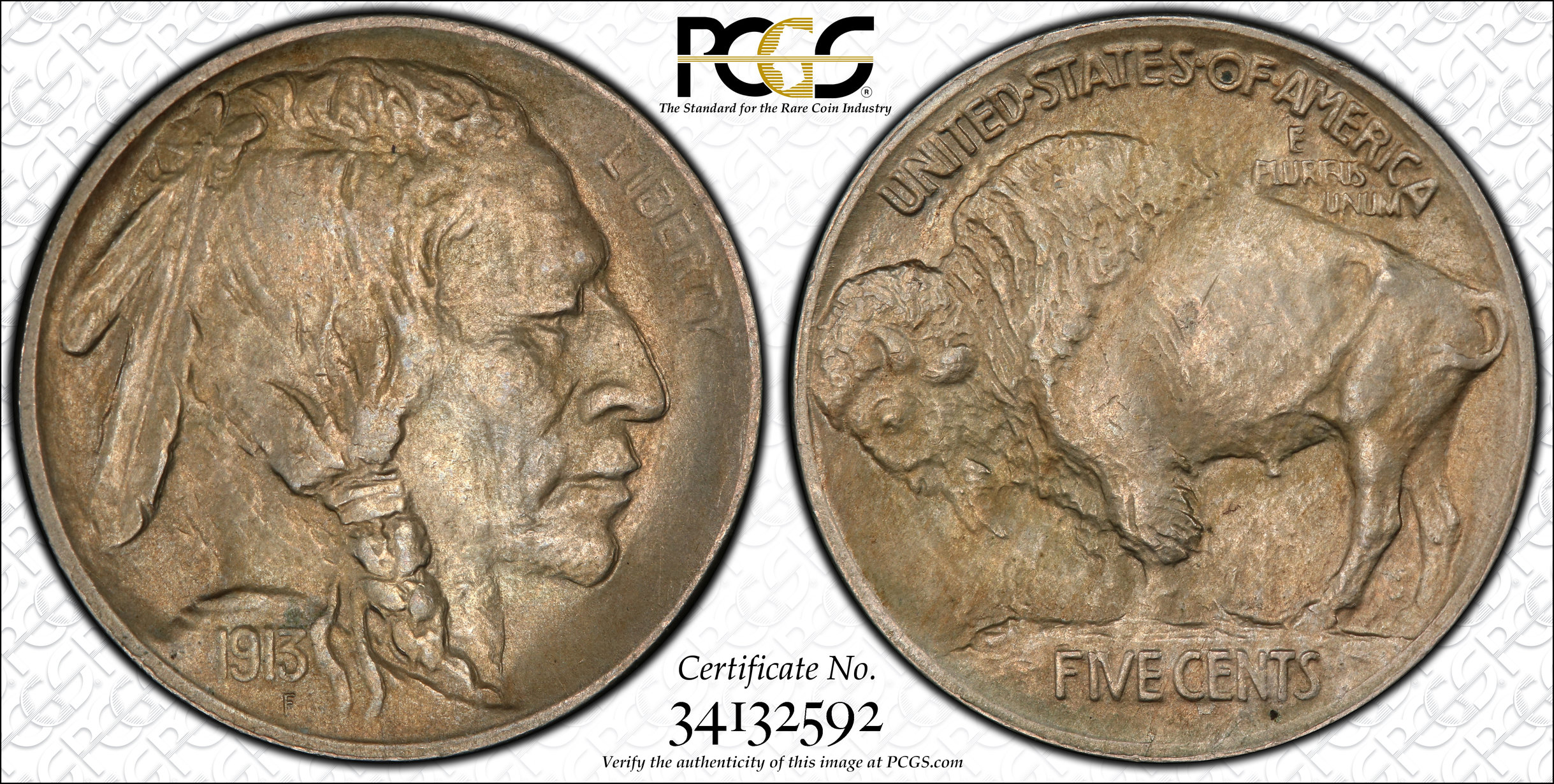1913 Type 1 Buffalo 2 1/2 Feather variety question
How common are the 2 1/2 Feather, Type 1, 1913 Buff's? And is the "finning" of these common as is seen on the example below? Not sure what caused the rim issue?? Thanks Guys!


1
How common are the 2 1/2 Feather, Type 1, 1913 Buff's? And is the "finning" of these common as is seen on the example below? Not sure what caused the rim issue?? Thanks Guys!


Comments
That's the obverse of what would become the 1913 Var 1 3 1/2 legged variety before the die was polished which resulted in the 3 1/2 legged coin. It's pretty scarce-somewhere between 150 and 200 known but it's worth far less than the die stage that shows the missing leg. I can't answer your question about the rim.
One of the members here has written a book on Buffalo varieties. He is not logged on at the moment. Hopefully, he'll ee this post if it stays on the first page. If I remember which one I will edit this post.
He was here!
Thanks Ron!
UMMM.......his post is right above yours.
Pete
Yep-I'm here!
And you're welcome!
Sure is. I'll comment on that: While I was writing my post he was answering the question (8:03PM). My ORIGINAL post was dated 8:04PM because no one had commented at that time and I was first to reply (I thought). After taking the time to look for his icon (koynekwest) in other discussions so I could tag him to the discussion, I saw he had posted at the same time and edited my post which changed the 8:04PM to the time of the edit. Happens all the time.
What I like about this obverse is when you see one you turn it over hopping to see the missing let too.
a.k.a "The BUFFINATOR"
Here is one I picked off of eBay, an ms60 note the weak leg on the reverse
a.k.a "The BUFFINATOR"
The 3 1/2 leg has to be from a later die state. Well, at the very least it had been in use for awhile. Of note is the fact that the dies were reworked twice, and in the process of the second reworking, the front leg was ground down.
The first rework diminished the inside feather very near to completely obliterating it. After that, of course, the second rework ground down the leg.
A quite interesting (and rare) coin in both phases. After two abraidings, the coin actually does not look that bad to me. It's a bit shallow in spots, but still a decent looking coin.
If I'm interpreting this correctly, the second abraiding was the result of a clash, and did not happen very long after the first one that took out the feather. The die was probably pulled not long after the leg got diminished for whatever reason. At least that is my take on it.
This would seem to explain the rarities of both die states.
Pete
It's my belief that the attenuation of the feather on the obverse was caused solely by the die clash.